Mark Carney’s Liberals Win in Canada on Anti-Trump Platform
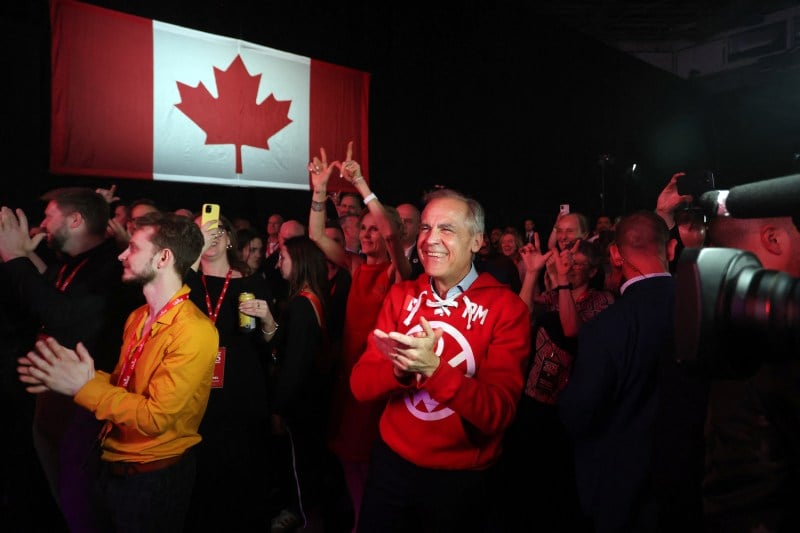
Mark Carney’s Liberals Win in Canada on Anti-Trump Platform
The victory over the Conservatives reflects widespread public outrage with the Trump administration’s threats.
Canadian Liberal Party leader Mark Carney dances at a victory party in Ottawa, Ontario, on April 29. Dave Chan/AFP via Getty Images
Welcome back to World Brief, where we’re looking at the results of Canada’s election, hearings on Israel’s aid obligations in Gaza, and a befuddling blackout in Spain and Portugal.
‘Trump Is Trying to Break Us’
Canadian Prime Minister Mark Carney narrowly triumphed in the country’s election on Monday, in a remarkable comeback for Canada’s Liberal Party that reflects overwhelming public outrage with the Trump administration’s trade war and territorial threats.
Welcome back to World Brief, where we’re looking at the results of Canada’s election, hearings on Israel’s aid obligations in Gaza, and a befuddling blackout in Spain and Portugal.
‘Trump Is Trying to Break Us’
Canadian Prime Minister Mark Carney narrowly triumphed in the country’s election on Monday, in a remarkable comeback for Canada’s Liberal Party that reflects overwhelming public outrage with the Trump administration’s trade war and territorial threats.
The Liberal Party ultimately secured 169 seats in the House of Commons, defeating its rival Conservative Party, which clinched 144 seats. But the Liberals fell short of the 172 seats needed to have an outright majority, meaning that they will need to band together with a smaller party to govern. In a major blow to the Conservatives, Carney’s challenger, Pierre Poilievre, also lost his seat in Parliament, which he had held for more than 20 years, to the Liberal candidate in the vote.
The outcome marks an astonishing turnaround for the Liberal Party, which was not initially seen as the favorite to win. Carney himself only became interim prime minister this year after his predecessor, Justin Trudeau, became so unpopular that he chose to resign following a nine-year run.
But the party’s fortunes changed with the return of U.S. President Donald Trump, his repeated threats to annex Canada, and the steep tariffs that he unleashed on Ottawa. Whereas Poilievre’s tone and views often drew comparisons to Trump, Carney made combating Trump’s threats the centerpiece of his election campaign and cast himself as a defender of Canada’s sovereignty. A former governor of the Bank of Canada and the Bank of England, Carney has positioned himself as a centrist politician and vowed to boost the Canadian military and unleash retaliatory tariffs against the United States.
In his victory speech, Carney railed against the Trump administration. “As I have been warning for months, America wants our land, our resources, our water, our country. But these are not idle threats. President Trump is trying to break us so that America can own us,” he said. “That will never ever happen.”
The Canadian leader also signaled the beginning of a new chapter in Ottawa’s ties with Washington. “Our old relationship with the United States, a relationship based on steadily increasing integration, is over,” Carney said. “These are tragedies, but it’s also our new reality.”
Carney said he intends to seek talks with the Trump administration to discuss the two countries’ future economic and security relationship. “We will fight back with everything we have to get the best deal for Canada,” he said.
Carney’s biggest foreign-policy challenges might be right on the horizon, according to Christopher Sands, the director of the Center for Canadian Studies at Johns Hopkins University.
“June will bring two defining tests for Carney: hosting the Group of Seven (G7) summit in Kananaskis—Trump’s first visit to Canada in his second term—and attending the NATO summit in The Hague,” Sands wrote for the Atlantic Council. “How he performs will shape Canada’s standing abroad—and at home.”
Today’s Most Read
- Get Ready for the Aleutian Island Crisis by Alex Alfirraz Scheers
- Four Explanatory Models for Trump’s Chaos by Emma Ashford
- Trump’s First 100 Days on the Global Stage by FP Contributors
What We’re Following
Global scrutiny. The United Nations’ top court, the International Court of Justice (ICJ), opened hearings this week on whether Israel is obligated under international law to allow aid to reach Palestinian civilians in the Gaza Strip. The hearings come as the death toll in Gaza has now surpassed 52,000 people and the U.N. World Food Program has warned that it has totally run out of food to distribute there.
For nearly two months, Israel has blocked the transit of all humanitarian aid—including food, fuel, water, and medicine—into Gaza as it seeks to force Hamas to release the remaining hostages it is holding. Israel has also banned UNRWA, the primary U.N. agency providing aid to Palestinians in Gaza, from operating on Israeli territory after accusing 12 of its more than 13,000 staff of involvement in Hamas’s Oct. 7, 2023, attack on Israel.
Israel did not send a delegation to the hearings, but 39 other countries are expected to take part. While the ICJ’s advisory opinions are not binding, it is politically significant and intensifies the global spotlight on Israel’s conduct in Gaza.
“Small stranded boat.” With the global trade war in full throttle, China is increasingly positioning itself as the international community’s protector in the face of Trump’s sweeping tariff threats. “China won’t back down so the voices of the weak will be heard,” the Chinese Foreign Ministry declared in a video released on Tuesday. “When the rest of the world stands together in solidarity, the U.S. is just a small stranded boat.”
The Trump administration has unleashed 145 percent tariffs on Chinese imports, and U.S. Treasury Secretary Scott Bessent has said it’s “up to China to de-escalate” the trade war. Beijing, though, appears to be gearing up for a fight. China will “never kneel down” to U.S. pressure, the video said. “Bowing to a bully is like drinking poison to quench thirst—it only deepens the crisis.”
Mystery blackout. Authorities in Spain and Portugal are still working to determine the exact cause of the sweeping blackouts that rocked both countries and parts of France on Monday, leaving tens of millions of people without power and throttling traffic and other travel. As power largely returned on Tuesday, Spain’s national grid operator ruled out a cyberattack as the source of the blackouts, instead pointing to a “very strong oscillation in the electrical network.”
FP’s Keith Johnson is based in Madrid and experienced the blackout firsthand. “The loss of all communications, even mobile and most fixed-line phones and of course internet, was the weirdest part,” he told World Brief. “But also, no stores: Without any way to process payments, and with fears over fridges, freezers, and looters, they all closed.”
“Unlike COVID, this episode ended quickly. Maybe, for now: Since we still don’t know the cause, it could happen again,” he added. “But now I know where the candles are kept.”
Odds and Ends
Man—er, jet—overboard! The U.S. Navy lost a $67.4 million fighter jet after it rolled off an aircraft carrier that it was being towed onto and plunged into the Red Sea, the Navy announced on Monday. The aircraft carrier in question had just swerved to dodge fire from Yemen’s Houthi rebels, a U.S. official told CNN. “Sailors towing the aircraft took immediate action to move clear of the aircraft before it fell overboard,” the Navy said in a statement, noting that one sailor suffered a minor injury.
Christina Lu is an energy and environment reporter at Foreign Policy. X: @christinafei
More from Foreign Policy
-

A drawn illustration of a Trump whirlwind on a red background Four Explanatory Models for Trump’s Chaos
It’s clear that the second Trump administration is aiming for change—not inertia—in U.S. foreign policy.
-

Marco Rubio is seen up close, sitting on a couch beside J.D. Vance. Marco Rubio’s Soulless Crusade
The U.S. secretary of state stands for no principle other than serving the man who appointed him.
-

Soldiers from various NATO allies take part in a military exercise at the Smardan Training Area in Smardan, Romania, on Feb. 19. America Will Miss Europe’s Dependence When It’s Gone
European self-reliance for security will cost U.S. jobs, profits, and influence.
-

A collage photo illustration shows Donald Trump gesturing with arms wide. In front of him are headshots of Benjamin Netanyahu and Vlodymyr Zelensky, images of immigratns and ICE police, a tattered EU flag and America First signs. Trump’s First 100 Days on the Global Stage
Ten thinkers on what to make of the opening salvo of the president’s second term.


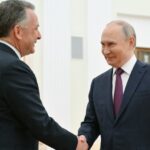
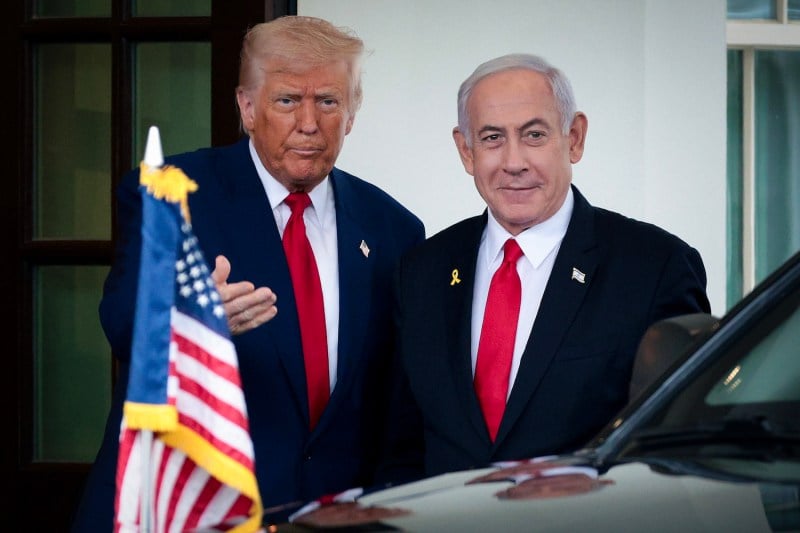

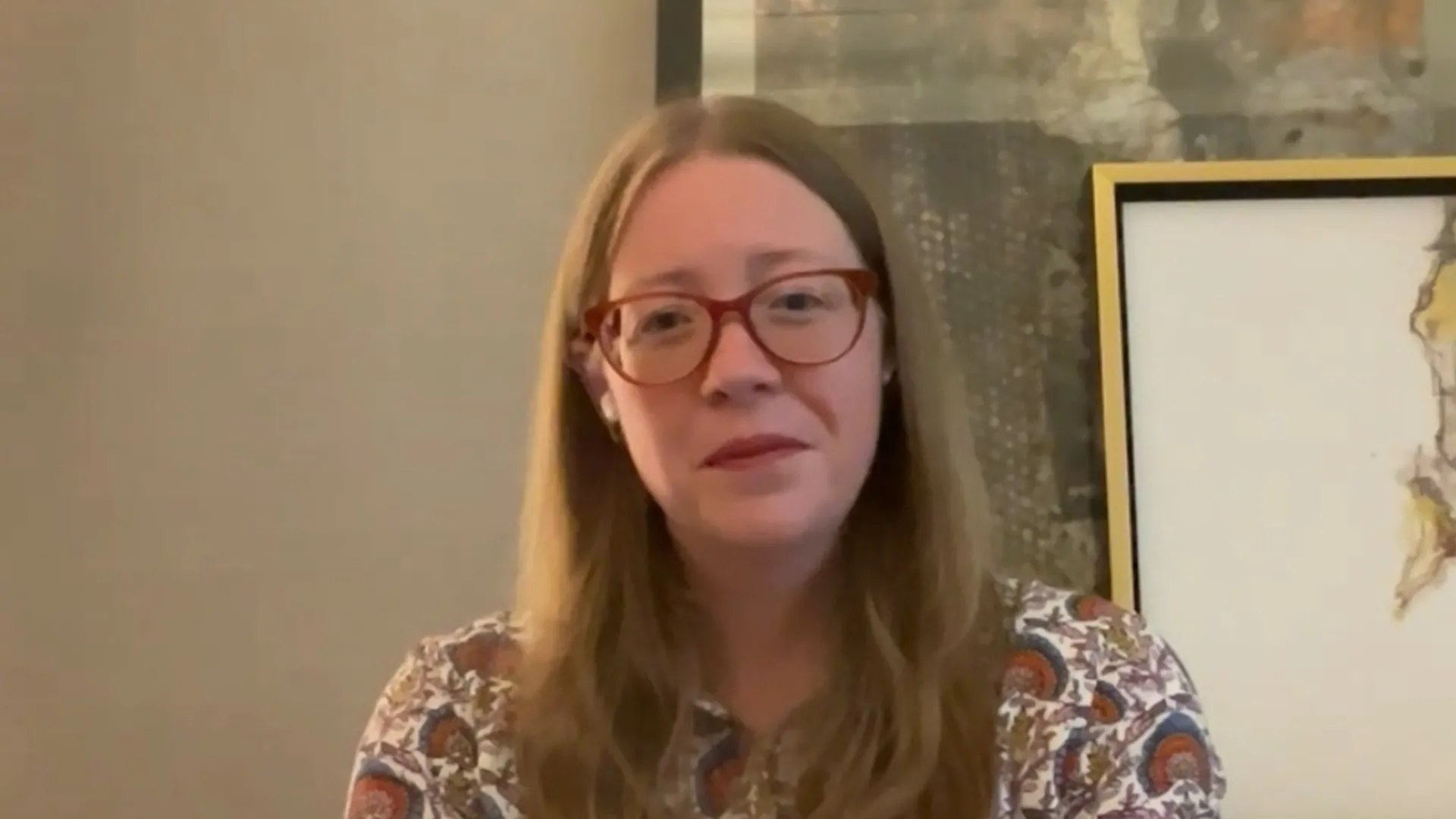
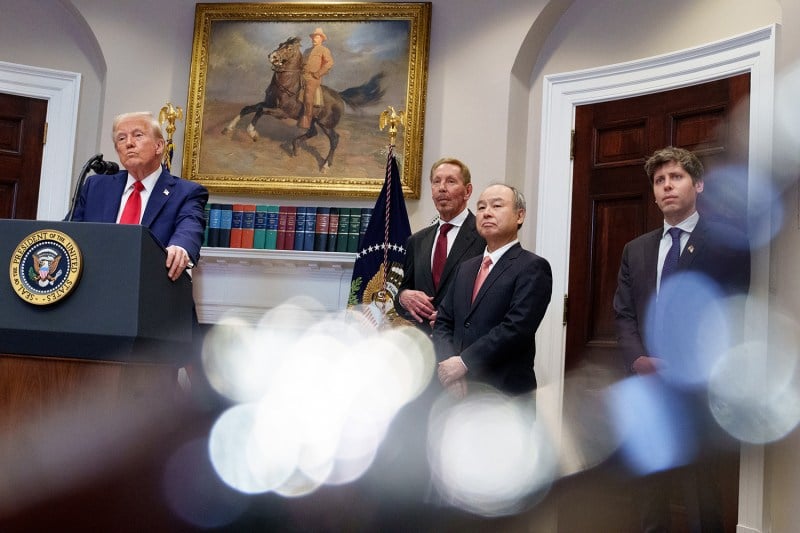
Join the Conversation
Commenting on this and other recent articles is just one benefit of a Foreign Policy subscription.
Already a subscriber?
.
Subscribe
Subscribe
View Comments
Join the Conversation
Join the conversation on this and other recent Foreign Policy articles when you subscribe now.
Subscribe
Subscribe
Not your account?
View Comments
Join the Conversation
Please follow our comment guidelines, stay on topic, and be civil, courteous, and respectful of others’ beliefs.
Change your username |
Log out
Change your username:
CANCEL
Confirm your username to get started.
The default username below has been generated using the first name and last initial on your FP subscriber account. Usernames may be updated at any time and must not contain inappropriate or offensive language.